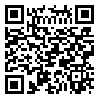Volume 16, Issue 1 (9-2025)
3 2025, 16(1): 5-16 |
Back to browse issues page
Download citation:
BibTeX | RIS | EndNote | Medlars | ProCite | Reference Manager | RefWorks
Send citation to:



BibTeX | RIS | EndNote | Medlars | ProCite | Reference Manager | RefWorks
Send citation to:
Abdolahi Shahvali E, Hemmatipour A, Mohtashami J. Health policies in the face of population aging in Iran: A systematic review study. 3 2025; 16 (1) :5-16
URL: http://ndhj.lums.ac.ir/article-1-446-en.html
URL: http://ndhj.lums.ac.ir/article-1-446-en.html
Abstract: (1179 Views)
objective: Population aging, as one of the most important demographic developments of the 21st century, is the consequence of the effects on the health system, retirement, and social security. In Iran, this process is also currently accelerating significantly. The aim of this article is to examine health policies in dealing with population aging in Iran.
Methods: This research is a systematic review study that was conducted in 2025 with the aim of examining health policies in the face of population aging in Iran. In order to collec t for this systematic review, the keywords health policies, health policymaking, health planning, population aging, and aging were searched in May 2025 in the international databases PubMed, Scopus, Cochrane, Science, Google Scholar Web OF and in the domestic databases SID, Magiran, Iran Medex.. Of the 1037 article retrieved based on the PRISMA checklist, only 10 articles were reviewed
Findings: The findings of this study showed that reforming the institutional system increases the potential of human capital in Iran and Iran needs comprehensive policies to improve elderly care. Key challenges for the elderly include the shortage of specialized human resources, lack of insurance support, negative social attitudes, gender and regional inequalities, and solutions to these challenges can include redefining macro policies, a dopting a multidimensional approach to population planning, and benefiting from the experiences of developed countries in social policymaking for the elderly.
Conclusion: To adapt to demographic changes , the country's health system must undergo changes in policymaking, service delivery structure, human resources, and financing. This research can be used as a guide for decision-makers in developing and implementing evidence-based programs in the field of aging.
Methods: This research is a systematic review study that was conducted in 2025 with the aim of examining health policies in the face of population aging in Iran. In order to collec t for this systematic review, the keywords health policies, health policymaking, health planning, population aging, and aging were searched in May 2025 in the international databases PubMed, Scopus, Cochrane, Science, Google Scholar Web OF and in the domestic databases SID, Magiran, Iran Medex.. Of the 1037 article retrieved based on the PRISMA checklist, only 10 articles were reviewed
Findings: The findings of this study showed that reforming the institutional system increases the potential of human capital in Iran and Iran needs comprehensive policies to improve elderly care. Key challenges for the elderly include the shortage of specialized human resources, lack of insurance support, negative social attitudes, gender and regional inequalities, and solutions to these challenges can include redefining macro policies, a dopting a multidimensional approach to population planning, and benefiting from the experiences of developed countries in social policymaking for the elderly.
Conclusion: To adapt to demographic changes , the country's health system must undergo changes in policymaking, service delivery structure, human resources, and financing. This research can be used as a guide for decision-makers in developing and implementing evidence-based programs in the field of aging.
Type of Study: Research |
Subject:
General
Received: 2025/08/23 | Accepted: 2025/09/17 | Published: 2025/09/22
Received: 2025/08/23 | Accepted: 2025/09/17 | Published: 2025/09/22
| Rights and permissions | |
 |
This work is licensed under a Creative Commons Attribution-NonCommercial 4.0 International License. |





